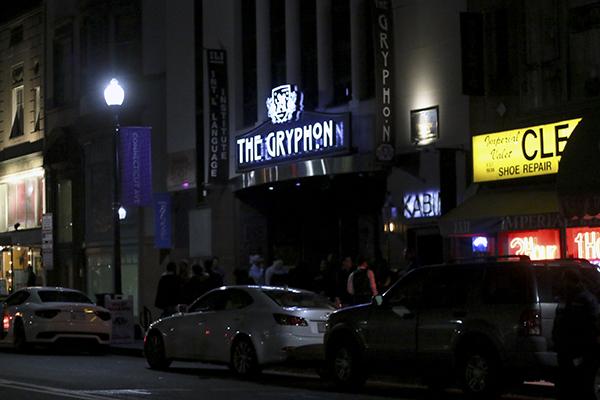Updated: Nov. 10, 2015 at 6:43 p.m.
Facing potential laws that could hurt their businesses, D.C. restaurant and bar owners have grouped together to advocate for their industry.
The D.C. Nightlife Hospitality Association formed as a trade organization last month, after some of the members said a recently proposed city noise regulation would effectively close their bar, club or restaurant by not allowing them to play music as the business owners have done in the past.
Business owners were motivated to create the group in response to D.C. Council legislation which would forbid business owners from playing music outside after midnight, according to a draft of the bill from September. That bill was proposed last spring by At-Large Council member Vincent Orange. In response, the bar and restaurant owners in the group said the regulations would force them to close at that time if they can’t play music.
Mark Lee, the group’s executive director, said the organization hopes to contribute to a “vibrant nightlife and dynamic nighttime economy in the nation’s capital.”
“Too often, D.C. officials do not consult with business owners when they propose and create new legislation and rules that affect them,” Lee said. “We should be consulted, respected and a part of helping D.C. Council members understand the challenges and opportunities of running a business.”
The Board of Directors and group members range from prominent owners of popular nightclubs to small businesses in D.C., including 9:30 Club, Town Danceboutique, Capitale and Echostage. Lee said having more than 40 members testify at a D.C. Council hearing on the bill two weeks ago was one event that demonstrates how they are effectively working together.
Jordan Cappolla, the general manager of Kabin Lounge, a club located near Dupont Circle, hopes the new group can help bridge the lack of connection between the business community and residents and help bring an end to the arguments.
“Music is an intrinsic part of the nightlife business and there are plenty of venues that are willing to compromise, but no one wants to argue this case to the end of time,” Cappolla said. “There has got to be a middle ground.”
Neighbors and local neighborhood groups who live near the K Street nightclub Shadow Room have historically protested the renewal of the business’s liquor license because of the noise disturbances the neighbors experience from the club. A representative from Shadow Room could not be reached for comment.
Noah Smith, the chair of the Advisory Neighborhood Commission that represents the Dupont area, said the regulations are needed to make sure that businesses realize that the District is also a residential community.
“So we have a unique and well-thought out set of policies on how to manage a mixed-use community, which is really what we are,” Smith said.
While Smith has not worked with the group, he hopes that it will to reach a common ground between the business community and residents.
“I think what I would like to see is a concerted effort on the part of the government to bring residents and the business community together around an agreeable set of rules that we can all follow,” Smith said.
This post was updated to reflect the following correction:
The Hatchet incorrectly reported that Mary Cheh and Vincent Orange introduced the bill last spring. Orange introduced the bill. The Hatchet also incorrectly reported that the bill would require restaurant owners to provide hourly updates of decibel levels in their establishments. In a more updated version of the bill, that requirement was changed to no longer allowing restaurant owners to play music after midnight. We regret these errors.







